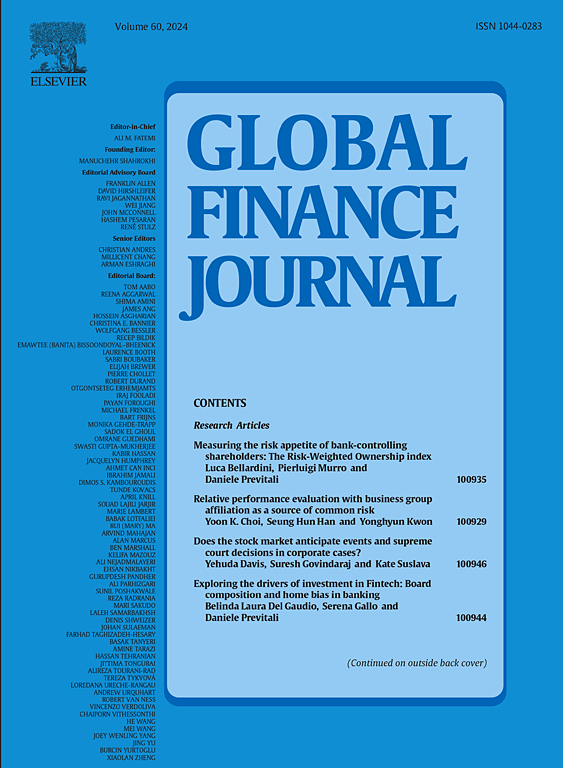Executive stock ownership, debt choice, and the moderating effect of institutional owners
IF 5.5
2区 经济学
Q1 BUSINESS, FINANCE
引用次数: 0
Abstract
This paper examines how executive stock ownership influences the choice of debt structure, investigating whether institutional owners moderate the relationship between the level of executive ownership and the decision to use public versus private debt. Our findings suggest that firms with higher levels of executive ownership tend to employ significantly more public debt financing to potentially reduce the monitoring intensity of their managerial decisions. However, we also find that oversight by motivated and longer-horizon institutional investors prevents firms from avoiding the more stringent monitoring associated with privately held debt. Further tests indicate that the link between CEO and executive ownership levels and the preference for public debt is more pronounced in smaller firms, which typically experience higher levels of information asymmetry. Our findings align with the monitoring avoidance hypothesis and the informational asymmetry hypothesis.
高管持股、债务选择及机构股东的调节效应
本文考察了高管持股如何影响债务结构的选择,调查了机构所有者是否调节了高管持股水平与使用公共债务或私人债务决策之间的关系。我们的研究结果表明,高管持股水平较高的公司倾向于采用更多的公共债务融资,以潜在地降低对其管理决策的监控强度。然而,我们也发现,有动机的长期机构投资者的监督使公司无法避免与私人持有债务相关的更严格的监督。进一步的测试表明,CEO和高管所有权水平与公共债务偏好之间的联系在较小的公司中更为明显,这些公司通常经历更高程度的信息不对称。我们的发现与监控回避假说和信息不对称假说一致。
本文章由计算机程序翻译,如有差异,请以英文原文为准。
求助全文
约1分钟内获得全文
求助全文
来源期刊

Global Finance Journal
BUSINESS, FINANCE-
CiteScore
7.30
自引率
13.50%
发文量
106
审稿时长
53 days
期刊介绍:
Global Finance Journal provides a forum for the exchange of ideas and techniques among academicians and practitioners and, thereby, advances applied research in global financial management. Global Finance Journal publishes original, creative, scholarly research that integrates theory and practice and addresses a readership in both business and academia. Articles reflecting pragmatic research are sought in areas such as financial management, investment, banking and financial services, accounting, and taxation. Global Finance Journal welcomes contributions from scholars in both the business and academic community and encourages collaborative research from this broad base worldwide.
 求助内容:
求助内容: 应助结果提醒方式:
应助结果提醒方式:


